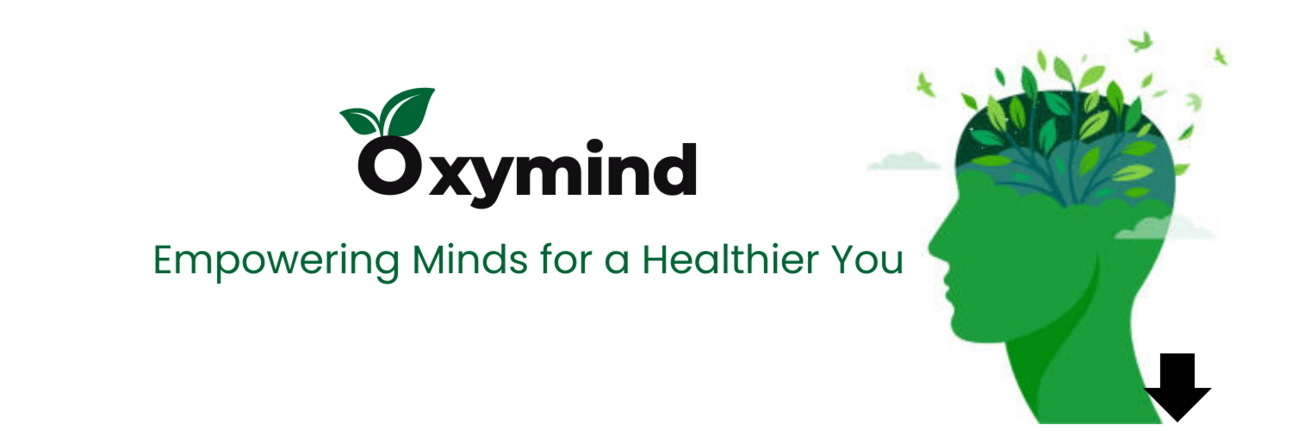- The Oxymind
- Posts
- Your Stress is Costing You $127,000 a Year – Here's How to Stop the Bleeding
Your Stress is Costing You $127,000 a Year – Here's How to Stop the Bleeding
How Smart Entrepreneurs Are Reclaiming Their Revenue with the Circuit Breaker Method"

In today’s email…
Your stress is costing you $127,000
Recipe of the week: The Executive's Stress-Shield Bowl
Trending mental health news this week
Resources to help you
Productivity Hack
Your stress is costing you $127,000
Picture this: You're in back-to-back meetings, your phone is buzzing with "urgent" notifications, and you've got three major decisions sitting on your desk that could make or break this quarter. Your chest feels tight, your mind is racing, and you tell yourself this is just "part of the game."
But what if I told you that the stress you're carrying—the one you've learned to live with—is literally draining your bank account every single day?
I'm not talking about medical bills or therapy sessions. I'm talking about something far more insidious: how chronic stress is hijacking your decision-making, sabotaging your productivity, and costing you opportunities you don't even realize you're missing.
Most entrepreneurs wear their stress like a badge of honor. "If you're not stressed, you're not growing," right? Wrong. That mindset is costing you more than you think.
Here's what really opened my eyes: Last month, I worked with a CEO who discovered that three of his biggest business mistakes in the past year—a bad hire, a delayed product launch, and a partnership that went sideways—all happened during periods of high stress. When we calculated the financial impact, it hit $180,000. In one year.
That's not unusual. That's the hidden tax of operating in chronic stress mode.
Let's talk numbers—the real ones that most entrepreneurs never calculate.
The Hidden Financial Drain of Stress

Here's the breakdown that made me pause: chronic stress costs entrepreneurs an average of $127,000 annually. Sounds dramatic? Let's do the math.
Productivity Loss: Stressed entrepreneurs operate at 23% reduced efficiency. For someone earning $200k annually, that's $46,000 in lost productive output.
Decision-Making Costs: Stress impairs prefrontal cortex function, leading to poor hiring decisions (average bad hire costs $240k), delayed strategic moves, and missed market opportunities. Even one major stress-induced mistake can hit six figures.
Health Impact: Stress-related health issues cost entrepreneurs 2-3x more than employees due to inconsistent healthcare and delayed treatment. Average annual impact: $15,000-25,000.
Innovation Tax: When you're in survival mode, you're not in innovation mode. Stressed brains can't access creative problem-solving. The opportunity cost of not developing your next breakthrough idea? Potentially millions.
The kicker? Most entrepreneurs don't realize they're operating in chronic stress mode because they've normalized the feeling.
The Entrepreneur's Stress Multipliers
Your stress isn't like everyone else's. While employees worry about one job, you're juggling these unique multipliers:
Decision Fatigue Overload: You make 35,000 decisions daily (compared to an employee's 5,000). Each decision depletes your mental resources, creating a compounding stress effect throughout the day.
Isolation Factor: As the founder, you can't vent to your team about cash flow concerns or strategic uncertainties. This isolation amplifies stress because you're processing everything alone.
Identity Fusion: Your business success feels tied to your personal worth. A bad quarter doesn't just affect your bank account—it affects your self-image.
Always-On Pressure: Employees go home. Entrepreneurs carry their business 24/7. Your brain never fully switches off, keeping cortisol levels chronically elevated.
Responsibility Amplification: Every decision affects not just you, but your team, investors, and customers. This weight multiplies the stress of each choice.
Sound familiar? You're not broken—you're responding normally to abnormal pressure.
The High-ROI Stress Management System
Here's the "Circuit Breaker Method" I've developed specifically for time-pressed entrepreneurs:
Immediate Circuit Breakers (Use in crisis moments):
2-Breath Reset: When facing a tough decision, take 2 deep breaths and ask: "What would I decide if I had unlimited time and resources?" This bypasses stress-induced tunnel vision.
The Pause Protocol: Before responding to stressful emails/situations, count to 7. This small delay prevents reactive decisions you'll regret.
Daily Stress Regulators:
Energy Economics: Track your energy like you track cash flow. Schedule high-stress activities when your energy account is "full" (usually mornings).
The 1% Rule: Dedicate just 1% of your day (15 minutes) to stress-reducing activities. ROI is immediate and measurable.
Weekly Stress Audits:
Pressure Valve Scheduling: Block 2 hours weekly for "thinking time" without meetings or decisions. Your brain needs processing time just like your business needs planning time.
Stress Source Analysis: Weekly review of what triggered stress. Treat it like analyzing business metrics—data-driven optimization.
"I was skeptical about stress management being 'productive,' but implementing the Circuit Breaker Method increased my decision quality by 40% and my team started commenting on how much calmer I seemed in meetings."
Recipe of the week: The Executive's Stress-Shield Bowl

The Executive's Stress-Shield Bowl
The Executive's Stress-Shield Bowl
Ingredients: | The 15-Minute Prep: |
1 cup quinoa | Cook quinoa while salmon bakes (12min) |
4 oz wild salmon | Steam broccoli in microwave (3 mins) |
1 cup steamed broccoli | Assemble bowl with spinach base |
1/2 avocado (healthy fats for sustained focus) | Top with quinoa, flaked salmon, broccoli, sliced avocado |
1 tbsp pumpkin seeds | Sprinkle pumpkin seeds, drizzle olive oil-lemon dressing |
2 cups fresh spinach | |
1 tbsp olive oil + lemon juice |
Trending mental health news this week
Mental Health Support for Police Officers: Following the 2020 George Floyd protests, initiatives to improve police officers' mental health have expanded. Programs include peer support teams, mental health debriefings for critical incidents, and activities like Brazilian jiu-jitsu to manage job-related stress. These efforts aim to address the psychological toll on officers amid heightened public scrutiny.
TV Comedies as Mental Health Relief: Shows like A Man on the Inside and Shrinking are highlighted for offering viewers a mental health break during challenging times. These comedies balance humor with emotional depth, addressing themes like grief and trauma, providing a respite from real-world stress.
Debunking Mental Health Misinformation: The New York Times’ Psych 101 column addresses trending mental health topics, such as relationship OCD, aiming to clarify misinformation and provide practical solutions. This reflects a broader cultural shift toward open discussions about mental health on platforms like TikTok
Resource to help you
Genius Wave: A neuroscience-based device that uses sound waves to promote relaxation and mental clarity, aiding healing.
Mindfulness: Everyday guided practice and meditation to help you deal with anxiety and overwhelming stress.
online-therapy.com: Life-changing therapy & tools for a new you.
Everyday Yoga: Whether you're just starting out or you're a seasoned yogi, you're covered. They pride in being the go-to destination for yogis, and offer a diverse range of top-of-the-line products from your most beloved brands.
Binaural Beats Meditation: Ennora Binaural Beats are special meditation music recordings that entrain your brain for better health and wellbeing, helping to reduce stress and anxiety, increase focus and productivity, improve sleep, heighten spiritual consciousness and more. Simply listen through headphones and relax. It's that easy.
Productivity Hack
Implementation Roadmap & Success Metrics
Week 1-2: Focus only on the 2-Breath Reset. Use it before every major decision. Track how many times you use it daily.
Week 3-4: Add Energy Economics. Rate your energy 1-10 at different times of day. Schedule demanding tasks during your peak energy windows.
30-Day Success Metrics to Track:
Decision confidence scores (rate each major decision 1-10 post-implementation)
Energy levels throughout the day (morning, afternoon, evening ratings)
Sleep quality improvements
Team feedback on your leadership presence
Troubleshooting Common Obstacles:
"No time for stress management": Start with just the 2-breath technique. It takes 30 seconds.
"Feels unproductive": Track one business metric alongside stress management. You'll see the correlation.
"Team thinks I'm going soft": Position it as "optimizing decision-making processes" or "enhancing strategic thinking."
Your 30-Day Challenge: Implement just one technique from this system. At the end of 30 days, calculate the financial impact of improved decisions, better energy management, and reduced mistakes.
Most entrepreneurs save their annual investment in stress management within the first quarter.
Ready to stop the financial bleeding?
Best,
Bolaji
The OxyMind
P.S. Reply with "CIRCUIT BREAKER" if you're ready to try this system. I'll send you my personal stress audit template that I use with my highest-performing entrepreneur clients.
P.P.S. Next week, I'm sharing the advanced technique that helped one founder avoid a $2M decision mistake by recognizing his stress signals early. Don't miss it.

